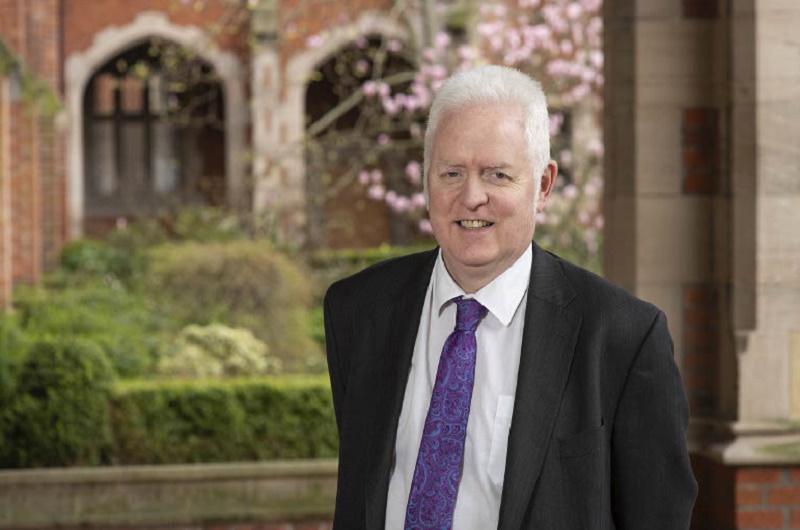Landmark study demonstrates economic benefit of precision medicine in treating cancer
A landmark study led by Queen’s University Belfast has shown how precision medicine can be a cheaper and more efficient way to treat cancer.

The study is the world’s first and most comprehensive study of the initial wave of precision oncology medicines in the marketplace.
It was led by Queen’s University and was conducted in collaboration with a team of precision healthcare economists and researchers from Salutem Insights Ltd, Diaceutics PLC and King’s College London.
The study examined the economic impact of precision oncology medicines compared to traditional oncology medicines. It found that it costs over $1 billion less in research and development (R&D) spend to develop an oncology medicine that is guided through clinical trials (precision oncology approach) compared to a “one size fits all” approach to treatment.
The findings been published in the Journal of Pharmaceutical Policy and Practice.
Precision oncology aims to develop medical treatments that target the molecular characteristics of an individual's tumour. Studies have shown that tumour shrinkage rates and progression-free survival are greatly improved with precision oncology. However, medicine development is a major contributor to health costs – with the average cost of getting a new oncology medicine into the market estimated at US $4.4 billion.
The study showed that by using the “CDx guided approach”, which uses a companion diagnostic to identify patients who are most likely to benefit from a particular medicine, increases the likelihood of a treatment being successful and therefore cutting costs.
Professor Mark Lawler, Professor of Digital Health at Queen’s University Belfast, co-lead of Health Data Research UK’s Big Data for Complex Disease Research Driver Programme and senior author on the paper, explains: “This landmark study highlights how precision medicine can deliver affordable care for cancer patients. Moving towards a precision oncology Companion Diagnostic (CDx) -guided approach can deliver health benefits at a potentially affordable cost, including in the development phase, lowering expensive clinical trial attrition rates and sparing patients from those treatments that are ineffective and may have significant side effects. If we don’t deploy a CDx guided approach we are missing a huge opportunity to deliver the best, most affordable care to our patients.”
Professor Richard Sullivan, Director, Institute of Cancer Policy, Co-Director of the Centre for Conflict and Health Research at King’s College London, and a co-author on the paper emphasises the significance of precision medicine's economic impact: “This study has been a vital piece of research to shine a light on the economics of precision medicine, as it represents the future. Already we can see significant R&D cost savings in this study and the potential to reach even more patients when that investment saving is directed to better testing and greater cost benefit to health systems.”
Dr Raymond Henderson, Senior Health Technology Assessment Manager at Salutem Insights Ltd and lead author on the paper, said: “This study emphasises how a precise health economic approach can provide the evidence base to underpin the delivery of precision oncology for patients.”
Peter Keeling, CEO of Diaceutics and co-author of the study, highlights the importance of these findings for the pharma industry: “Utilising this same base-line landmark financial analysis, we can for the first-time postulate what might be the actual lifecycle advantage of recovering patients lost to the diagnostic pathway with an investment in better testing.”
The study hypothesises (based on evidence of commercial impact and previous published analysis) that a $50 million timely investment in better testing would potentially gain significant lifecycle revenues per therapy; for every $1 million invested in better testing, an additional $100 million+ in additional lifecycle revenues for that therapy could be realised.
Professor Lawler added: “However, despite the mounting evidence that precision oncology approaches appear to offer better value to the key stakeholders; payers, patients and the pharmaceutical industry, there are still barriers to be overcome that require a new operating model which enables these cost-effective innovative treatments to reach all of our patients.”
This work was supported by a grant from Health Data Research UK (HDR UK) and funding from the Queen’s University Belfast Foundation.
Featured Expert
